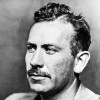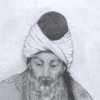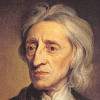“ For what a man sees, he cannot but see; and what he perceives, he cannot but know that he perceives. ”
John Locke, An Essay Concerning Human Understanding (1689). copy citation
| Author | John Locke |
|---|---|
| Source | An Essay Concerning Human Understanding |
| Topic | |
| Date | 1689 |
| Language | English |
| Reference | |
| Note | |
| Weblink | http://www.gutenberg.org/cache/epub/10616/pg10616-images.html |
Context
“and if they have names for those ideas which they have thus considered, they must needs be assured of the truth of those propositions which express that agreement or disagreement they perceive in them, and be undoubtedly convinced of those truths. For what a man sees, he cannot but see; and what he perceives, he cannot but know that he perceives.
3. Instance in Numbers.
Thus he that has got the ideas of numbers, and hath taken the pains to compare one, two, and three, to six, cannot choose but know that they are equal: he that hath got the idea of a triangle, and found the ways to measure its angles and their magnitudes, is certain that its three angles are equal to two right ones;”
source



